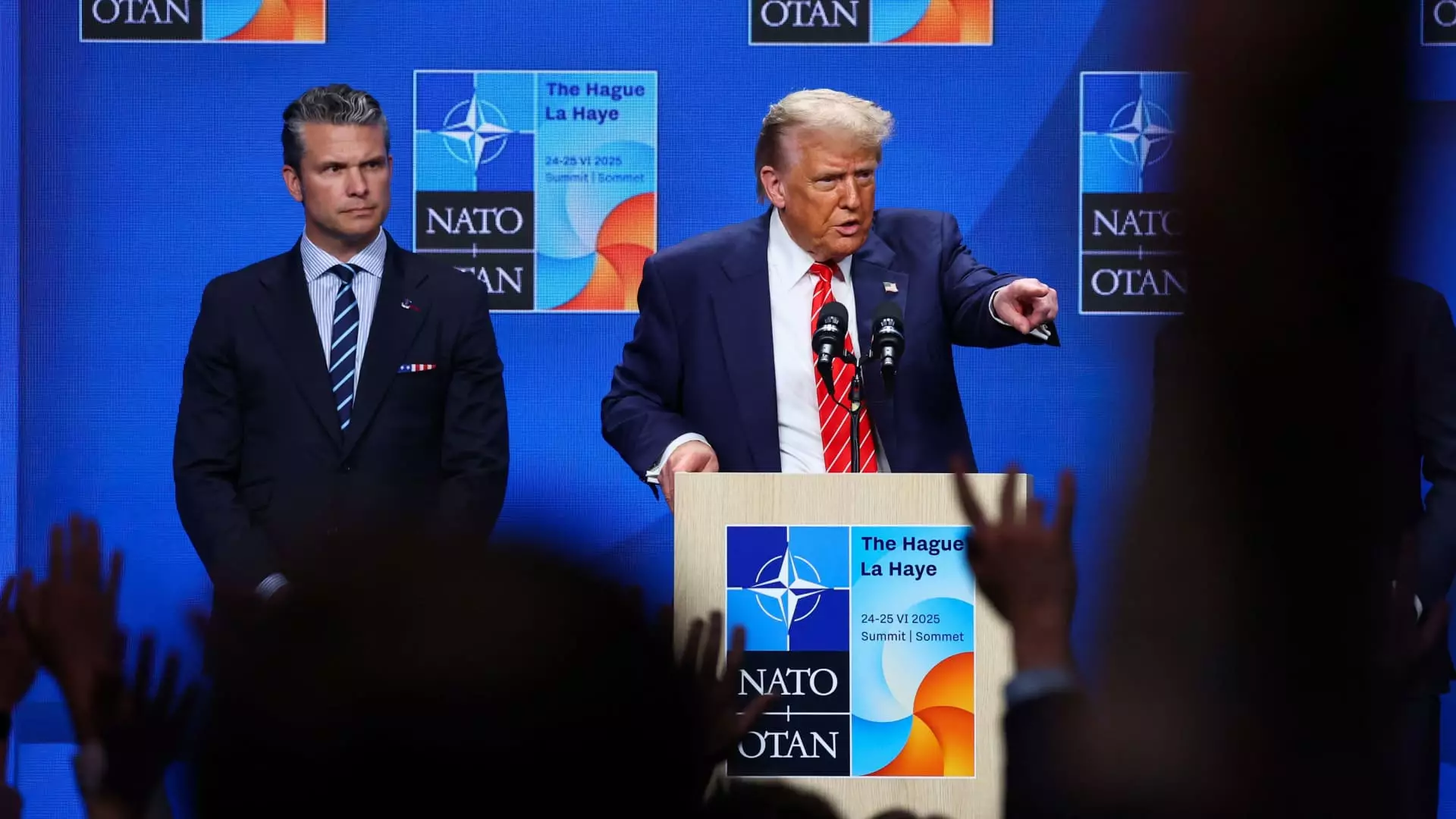President Donald Trump’s unwavering assertion that U.S. military actions have obliterated Iran’s nuclear capabilities is, at best, misleading. In a recent press conference, he confidently declared that the nuclear facility at Fordo had been “totally obliterated.” Simultaneously, the reality is that preliminary intelligence assessments tell a different story. They assert that, while U.S. airstrikes may have inflicted damage, the reality is that Iran’s nuclear program has merely been postponed, not demolished. That disconnect should raise red flags about the veracity of political narratives and the potential consequences of embracing hyperbole over the truth.
In a world teeming with information, it has become increasingly easy for public figures to mold realities to fit their narratives. Trump’s adamancy might resonate with supporters keen on seeing a decisive action against a geopolitical adversary, but such rhetoric can sow seeds of misinformation that complicate the public’s understanding of crucial international matters. The interplay between public relations and military reality presents a disconcerting dilemma: how do leaders balance the need for power projection with the factual consequences of their actions?
Cherry-Picking Data: The Dangers of Miscommunication
One of the most troubling elements of this entire situation has been the response to the intelligence community’s findings. The defense of the airstrikes seemed to pivot solely on Trump’s insistence while simultaneously lambasting the report as flawed. Press Secretary Karoline Leavitt’s dismissal of the anonymous source within the intelligence community, labeling the assessments as “flat-out wrong,” raises concerns about how far the administration is willing to go to protect its narrative. Diminishing the credibility of intelligence assessments in favor of political expediency echoes a broader trend—a trend toward an increasingly adversarial relationship between governmental institutions and objective reporting.
This clash boils down to a symptomatic misunderstanding of how intelligence operates. Intelligence reports, by their nature, are built on incomplete insights; they are merely snapshots of complex situations. The public should not expect absolute certainties, especially in such a high-stakes domain as international security. Disregarding this nuance for the sake of political gain is not only dangerous but fundamentally shortsighted.
Echoes of Misinformation and Its Fallout
The implications of such miscommunication cannot be overstated. When influential leaders propagate narratives that may be steeped in inaccuracy, they run the risk of inflaming tensions. Misguided confidence can lead to miscalculations on the world stage. The robust framing of military actions as outright success could embolden not just Iran, but a myriad of other nations watching closely—setting a precedent for retaliation or aggression based on distorted perceptions of strength.
Moreover, the potential for “leak investigations” and aggressive posturing toward dissent within intelligence ranks signals an environment where accountability can be sacrificed on the altar of loyalty. It invites a troubling question: what incentive do intelligence professionals have to provide candid assessments when faced with the possibility of vilification for sharing inconvenient truths? Rather than fostering a culture of openness and honesty, the current administration risks breeding an atmosphere of fear, thus hampering the very principles that support informed decision-making.
The Politics of Warfare: A Fractured Binary
Trump’s portrayal of the airstrikes against Iran exemplifies the convoluted nature of modern warfare discussions. The strategy behind such military actions should be scrutinized through multiple lenses—humanitarian implications, global stability, and long-term security versus short-term political wins. Center-wing liberalism calls for nuanced interpretations, suggesting that the binary notion of “success” versus “failure” in military engagements is inherently flawed.
Furthermore, the undeniable influence of ally narratives complicates the discourse. The leaked statements from Israel’s Atomic Energy Commission praising the U.S. strikes must be viewed through the prism of geopolitical alliances and vested interests. While these endorsements may strengthen Trump’s claims, they also prompt investigations into the authenticity of the information. In doing so, it questions whether these statements serve a broader agenda rather than reflect a holistic assessment of the impact of military interventions.
The line between patriotism and blind allegiance is a precarious one, and the integrity of public discourse depends on maintaining clear distinctions among opinion, propaganda, and genuine intelligence. The real challenge arises in fostering a political environment that values honesty, clarity, and restraint in a time when the lines between all of these concepts seem to blur.


Leave a Reply